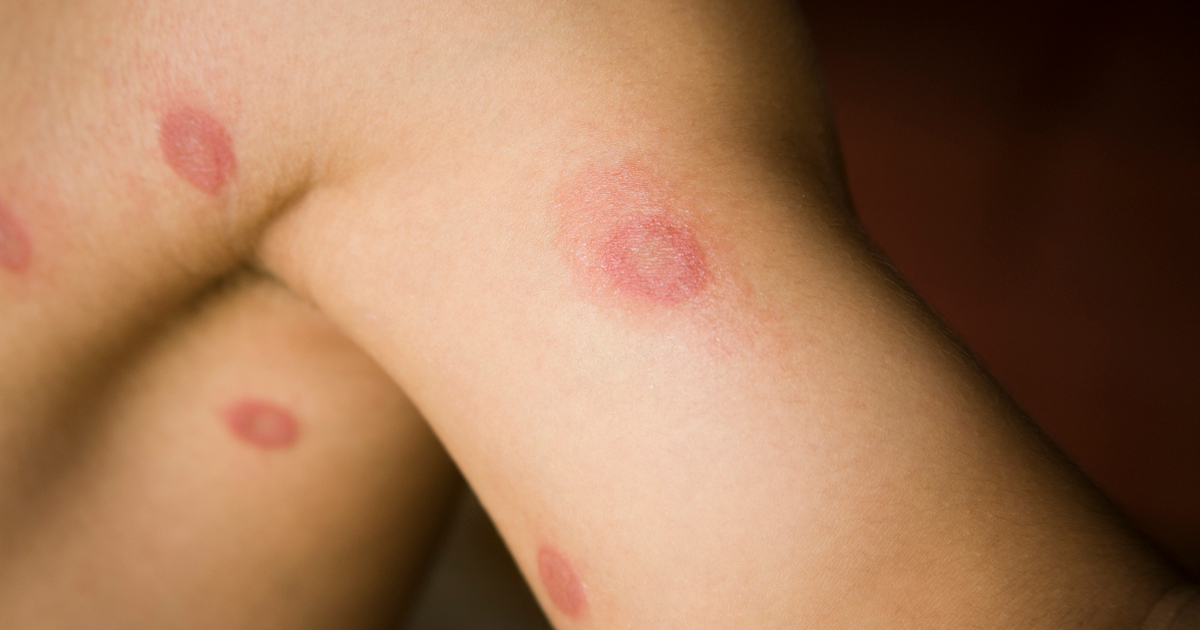You asked, we answered: What is ringworm? How can I avoid it?

Question:
Is it normal for ringworm lesions to be oozing out clear fluid? If not, what does it mean? I have several lesions, mostly on my face and neck. My dermatologist prescribed pills, an antiseptic washing gel and a cream. I've been taking those for two days now, but I wonder if the fluid oozing out might mean anything more serious.
Answer by dermatologist Megan Arthur, MD:
Depending on the location on the body, a variety of fungi can cause ringworm. And it has nothing to do with worms.
The most common type of ringworm (tinea corporis) is a superficial, dry, circular rash with a clear area in the center of the ring. The skin can crack and peel, but when it appears on the main parts of the body (face, trunk, arms, back, legs), it's uncommon to have blisters associated with it. Caused by a fungal infection, the rash is usually red and itchy – not oozing. Symptoms typically appear between four and 14 days after the skin comes in contact with the fungi.
Ringworm is spread through direct skin-to-skin contact. It is contagious and can spread from other humans, animals and even objects or surfaces an infected person has recently touched. Many times ringworm is transferred via contact sports, wet and humid environments, objects like damp towels or occasionally from an infected pet. Without treatment, the infection will continue to spread.
"Blisters or rashes on the skin that are oozing fluid could mean various things," says Dr. Arthur. "When a rash becomes secondarily infected, it can sometimes cause oozing lesions. Eczema may also cause oozing lesions. Most anti-fungal treatments will take a while to work. If you've not seen improvement within a week or two, call your doctor because you may need a different kind of treatment."
Another common form of ringworm is athlete's foot (tinea pedis). This type can have symptoms similar to those on the rest of the body but can occasionally cause blisters. Athlete's foot can spread from the feet to other parts of the body and can reoccur often.
Other similar fungal infections include jock itch, scalp ringworm and nail infection.
Common types of ringworm are usually treated with a topical antifungal agent or oral antifungal medicine. The treatment and length of treatment will depend on the type of fungi and location on the body.
What about essential oils to treat ringworm?
There isn't enough reliable data to support essential oils for ringworm treatment. "Essential oil is not something I would recommend," says Dr. Arthur. "There are readily available, over-the-counter antifungals that we regularly recommend. They tend to be quite effective without a prescription. If the infection is more widespread or is not improving with topical creams, we'll typically prescribe an oral medication.





